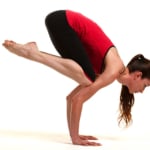What is Depression? Symptoms, Causes, Types, Treatment
By Himanshu JoshiYogaImagine having an uncomfortable feeling in the pit of your stomach, a feeling of worthlessness, constant sadness, hollowness, inability to feel anything, thoughts of suicide, with no light at the end of the tunnel. Depression makes you vulnerable in all the ways possible. It sucks all the joy out of life, leaving you at times completely exhausted or totally empty.
In addition to the mental anguish it brings along a host of ailments that make the journey even more difficult. While the one suffering from depression may feel there is no hope for him/her, getting diagnosed and starting medication in most cases will bring relief and help one get recovered.
Depression can be a different experience for an individual depending upon the symptoms. There are different types of depression and in most of the cases it can be controlled once medication is started.
Although there is a stigma around depression and people still need to be made aware of the mental problem, it is a common ailment with 264 million people worldwide from all age groups affected by it. Depression is different from a normal mood swing, a bout of sadness or blues for a couple of days, it lingers for a long period making the people affected by it unable to go on with their day to day activities and enjoy life. One of the worst symptoms of depression is feeling suicidal. Close to 8,00 000 people die due to suicide every year.
While there is no cure of depression but the symptoms can be managed and they go away with time. There will be depressive episodes and awareness about the condition can help one devise a strategy to deal with it every time it occurs. People with depression may lose interest in day to day activities and even getting out of the bed requires an effort when depressed. Many people will find it difficult to continue their office work and it could also affect their relationship with people.
Dealing with depression is not easy and people around the one who’s struggling with it should understand this. First and foremost, one must understand that depression is not something from which one can snap out, it is a mental health condition and the person suffering from it has no control over it. Instead of saying – ‘you should try to be happy’, one should silently be there for the person, and help wherever it is required. With treatment, love, and support, one can fight depression and come out of it with flying colours.
It is to be noted that experiencing grief is different from depression and some of its symptoms may overlap with depression. When one is grieving the death of a loved one, difficulty in concentrating or detaching from the outside world is normal. Whereas when one is depressed the feeling of worthlessness is accompanied with detachment from outside world. Grief of losing loved ones is even more challenging for people with depression and they must consult an expert in this case.
Symptoms of Depression
- Feeling of sadness, emptiness, hollowness
- Feeling of worthlessness
- Difficult concentrating
- Losing confidence in many decision
- Anxiety or restlessness
- Slow thinking, speaking or body movements
- Feeling of tearfulness or bouts of tearfulness
- Irritability or unreasonable frustration
- Angry outbursts
- Sleeping troubles like insomnia or oversleeping
- Exhaustion and lack of energy
- Reduced appetite and weight loss
- Trouble remembering things
- Lack of interest in daily activities
- Reduced sexual desire
- Thoughts of death or suicide
Depression in kids
Like adults, kids too can get depressed due to a variety of factors like family environment, genetic factors, life events, physical health etc. Generally mental health issues in children are not taken seriously and are tagged as part of their development process. If your child is withdrawing himself/herself socially, has reduced appetite, losing weight, changes in sleep patterns, is constantly cranky, and shows any such symptoms, one must take the advice of a psychologist.
Symptoms of depression in kids are anger, continuous feeling of hopelessness or sadness, being sensitive to rejection, change in appetite, crying, fatigue, refusing to go to school, using drugs (in case of teenagers), unexplained aches etc.
Depression in elderly
As people grown old, the risk of depression increases due to loss of relatives, spouse or other family members. Because of the ageing process physical appearance may also change which could affect people. Elderly also struggle with their routine trying to find meaningful things to engage themselves at times. One should not ignore the symptoms of depression in older adults as that may increase chances of other physical ailments like heart diseases, among others.
Symptoms of depression in elderly are feeling tired, sleep problems, irritability, grumpy behavior, less interest in outside activities, moving slowly, feeling hopeless or worthless, unexplained aches and pains, suicidal thoughts etc.
Causes of depression
Although there is no specific reason to slip into depression, there are factors that increase your chances of getting depression. These factors can be biological, related to family or circumstances.
The common causes of depression are:
Family history: If your parents or other close relatives experienced depression at some point of time in their life, you are prone to mood disorders.
Health conditions: Chronic health conditions like pain, insomnia, ADHD at can make you prone to depression.
Addiction or drugs: If you have some kind of addition and have used drugs or put yourself through substance abuse, there are chances that you may have depression later in your life.
Brain structure: If the frontal lobe of your brain is less active, you are more at risk of depression than others. There aren’t enough researches to know if these changes happen before or after the onset of depression.
Trauma: Early childhood trauma may wire your brain to respond to fear and stressful situations in a particular way. Loss of loved one, economic problems, or a divorce could also trigger depression.
Nature: If you certain personality traits like being self-critical or have low self-esteem, it could make you prone to depression
Types of Depression
Major Depressive Disorder
Clinical depression or major depressive disorder is likely to render most of your day unproductive, hopeless and full of despair. With this type of illness, one may find difficult to wake up, eat, sleep, study, work, enjoy activities that earlier gave one joy, enjoy other’s company among other things. Major depressive disorder often affects people with no family history of depression, however it may also occur in people who do have such history. People who have major depressive disorder may wake up feeling empty and hopeless. If the symptoms persist for more than 2 weeks, every day, then it is likely to be depression. More women than men are at risk of getting major depressive disorder due to hormonal changes during puberty, menstruation, pregnancy, menopause, or other reasons.
Persistent depressive disorder
Persistent depressive disorder or dysthymia is something that affects you in long term and although its symptoms may ease for a couple of months, it is persistent for years together. The person who has this disorder may often be perceived as an unhappy or detached person who doesn’t like to mingle much. One may have low self esteem or the tendency to feel guilty. There may be a feeling that we do not deserve or we are not worthy of something. Such person does not find day to day activities interesting. Sometimes people with this kind of depression also have episodes of major depressive disorder in between and can be diagnosed with double depression. Psychotherapy and medication can help manage symptoms.
Peripartum depression
Pregnancy brings along a lot of changes in a woman’s life from physical, emotional, financial etc. No wonder women are prone to anxiety, depression and other mental health problems during the period. While many women experience baby blues, a condition which does not affect daily activities and lasts till a couple of weeks, there are a few women who struggle with postpartum depression which may continue for an indefinite period if not treated.
Peripartum depression or postpartum depression typically begins during the pregnancy and persists even post it making things difficult for a new mother and her child. Symptoms of Peripartum depression may include feelings of extreme sadness, loneliness, indifference or anxiety. The person experiencing it may have changes in her appetite, sleep patterns (too little or too much sleep), in energy levels and lack of interest in activities that were earlier enjoyable.
Seasonal depression
Seasonal affective disorder strikes at a particular season. It starts and ends at the same time every year. For some the symptoms may start at the end of fall and continue into the winter months, while for some it may be a summer disorder with symptoms starting towards the spring and continuing through summer. While in winter depression, a person may experience oversleeping, appetite changes, weight gain, low energy, in the depression in summer season there may be trouble in sleeping, poor appetite, weight loss, anxiety etc. The symptoms may start out mild and become more severe as the season progresses. Treatment for Seasonal depression many include light therapy, psychotherapy, medications etc.
Bipolar disorders
Bipolar disorder has two aspects related to extreme mood swings in a person. A person suffering from it either feels high or low. In the high period there are episodes of mania or hypomania and when feeling low a person may showcase symptoms of depression. When the person feels depressed, he/she may lose interest in activities he/she once enjoyed, has less energy to carry out the day, feeling of emptiness or hopelessness, indecision, change in sleeping pattern and appetite etc. During the manic episode, a person may feel euphoric, high levels of energy, hyperactivity, talkativeness, poor decision making, self-confidence etc. The condition is common in teens or those in twenties. Once must seek help when there are noticeable extreme mood swings of this nature in a person.
Premenstrual dysphoric disorder
This is experienced by women before their monthy menstrual cycle at times along with PMS or pre-menstrual symptoms like bloating, headaches and breast tenderness. Women suffering from this are prone to severe anxiety, depression and mood swings during this time. Premenstrual dysphoric disorder is a more severe form of PMS. The symptoms improve within a few days of the start of your periods but are severe enough to disrupt your life. Hormonal changes during the menstrual cycle may lead to this condition.
Disruptive mood dysregulation disorder
This kind of disorder impacts kids or adolescents. The children impacted by this show irritability, anger and frequent outbursts and find it difficult mixing up with others and have problems building relationships in school, home or otherwise. While many may feel these outbursts, or mood swings is due to developmental changes in children, if these symptoms persist for at least 12 months or the temper outbursts occur as frequently as 2-3 times in a week and the chronically angry mood remains almost every day, one can consult the child’s pediatrician. Children aged 6-10 are generally diagnosed with this disorder.
Treatment of Depression
Diagnosis
Physical exam: Your doctor may recommend a physical examination as in some cases, depression may be linked to an underlying physical health problem.
Lab tests: You may be asked to go for a blood test called a complete blood count or test your thyroid to make sure it’s functioning properly.
Psychiatric evaluation: Your mental health professional will ask you in detail about your symptoms, what you are going through, thoughts, feelings and other things.
Listed below are the ways you can treat depression:
- Medications: Sometimes all you need is to start your medication to bring a change in the way your mind is responding. Your doctor may prescribe you antidepressants, anti-anxiety pills or antipsychotic medication depending on your symptoms.
- Psychotherapy: Talking with a therapist can help you cope with your condition better. It can help you identify your negative behaviour and encourage you to replace it with a positive one and develop positive interactions with others. It may also help identify issues that contribute to your depression and find ways to change them.
- Light therapy: It is especially helpful in case of those suffering from seasonal disorders. The exposure to light helps improve the mood and improve symptoms of depression.
- Alternative therapies: Ayurveda, Yoga, acupuncture are among the host of alternative therapies that can aid in treating depression.
- Physical Exercise: Go for a morning walk or any kind of physical activity that is convenient for you 30 minutes 3 to 5 days a week. Exercise can boost production of endorphins, hormones that improve your mood.
- Personal care: One must eat nutritious food, get adequate sleep, avoid negative people and things that could increase your stress level and do things that you like doing.






